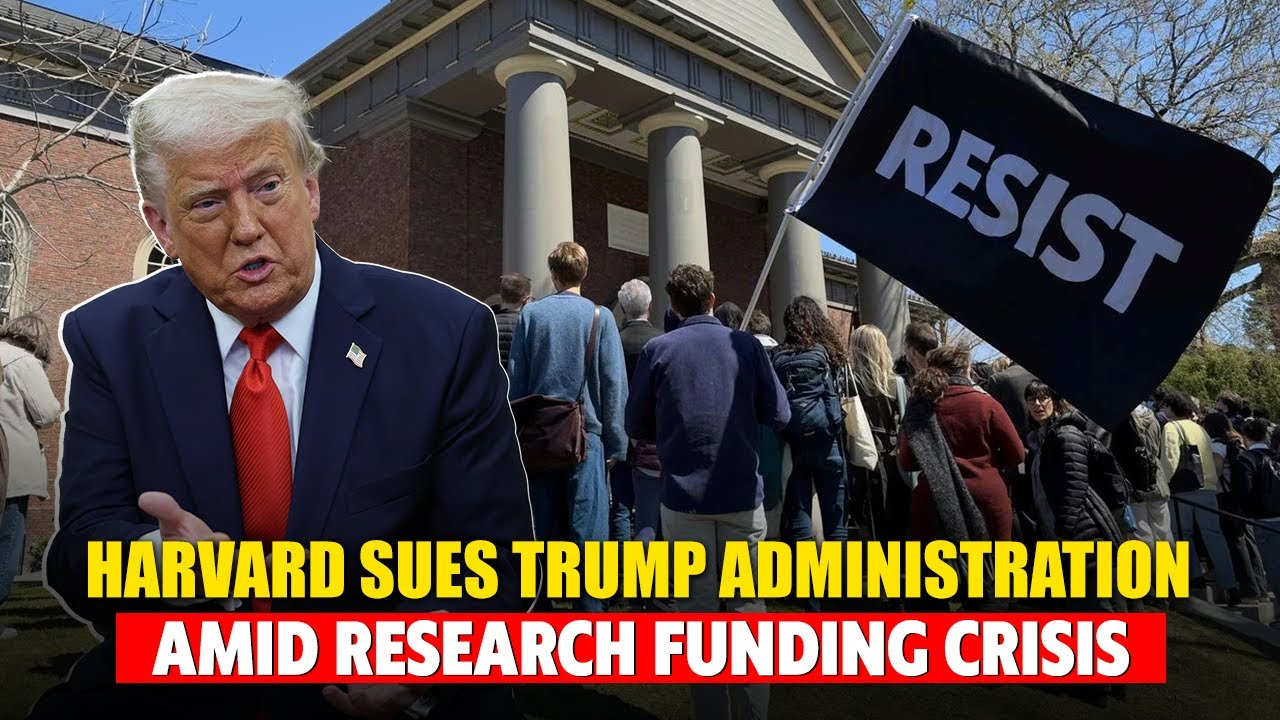The Harvard research funding crisis signifies a pivotal moment in the future of academic innovation at one of the world’s leading universities. Following the Trump administration’s decision to freeze approximately $2.2 billion in federal research funding, Harvard researchers found themselves grappling with immediate stop-work orders on critical projects, including pioneering organ-on-a-chip developments led by Don Ingber at the Wyss Institute. These cuts directly impact not just the funding landscape but also the nation’s broader commitment to scientific inquiry and advancement — a concern echoed by the U.S. Department of Health and Human Services. As Harvard pursues a lawsuit to challenge this funding freeze, the implications of government intervention loom large, raising questions about the future of innovation in America. In a rapidly shifting educational landscape, the stakes are not merely financial; they resonate with the core values that support the advancement of science and technology.
The ongoing crisis surrounding funding for research at Harvard has sparked significant concern regarding the future of innovation in academia. In light of recent political maneuvers, including a freeze on significant federal funding, researchers at Harvard are facing unprecedented challenges that hinder their ability to advance scientific exploration. This tumultuous situation, marked by stop-work orders imposed on critical projects such as those involving groundbreaking organ-on-a-chip technology, reflects a larger pattern of governmental influence on educational institutions. As the university contemplates legal actions to recover lost funds, the impact of such government decisions on the academic community and beyond cannot be understated. The ramifications extend beyond Harvard, potentially affecting the landscape of scientific research and technological development across the United States.
The Fallout of Harvard’s Funding Crisis
In the wake of the recent funding cuts initiated by the U.S. Department of Health and Human Services, Harvard University has found itself navigating a critical funding crisis that has sent shockwaves through its research community. The government’s decision to halt approximately $2.2 billion in research funding has directly impacted numerous projects, including cutting-edge studies at the Wyss Institute. As a response to Harvard’s refusal to comply with administrative demands, researchers are grappling with the chilling effects of these stop-work orders, which threaten the continuity of innovative projects and the livelihoods of many dedicated scientists.
Don Ingber, a prominent figure in the field of biologically inspired engineering, faces significant challenges as he leads his team through this complicated landscape. The implications of the funding cuts extend beyond immediate budget concerns; they jeopardize long-term research goals that had the potential to revolutionize healthcare and technology. As Ingber seeks to protect his researchers and projects, the overarching concern remains not just what is at stake financially, but also how these decisions impact the future of innovation in America.
Frequently Asked Questions
What led to the Harvard research funding crisis of 2025?
The Harvard research funding crisis began when the university rejected demands from the Trump administration, leading to a stop-work order that froze approximately $2.2 billion in research funding from the U.S. Department of Health and Human Services. This order affected projects, including those led by Don Ingber at the Wyss Institute, and resulted in a lawsuit from Harvard challenging the legality of the demands for changes in governance and oversight.
How did the stop-work order affect Harvard’s research projects?
The stop-work order halted multiple research projects at Harvard, particularly those involving critical organ-on-a-chip technology developed by Don Ingber. The freezing of funds disrupted ongoing experiments, jeopardizing research progress and placing significant strain on researchers, students, and staff involved in those projects.
What is the significance of the organ-on-a-chip projects impacted by the funding crisis?
The impacted organ-on-a-chip projects at Harvard, particularly those studying radiation damage and the effects of microgravity on astronauts, are vital for understanding human health risks in extreme environments. These studies aim to advance medical treatments for cancer patients and enhance astronaut safety for future missions, especially in light of NASA’s plans for manned journeys to Mars.
What actions has Harvard taken in response to the funding crisis?
In response to the funding crisis and subsequent stop-work order, Harvard has filed a lawsuit against the government, arguing that the demands placed upon the university are unconstitutional. The lawsuit seeks to restore funding and challenge the legality of the government’s demands, positioning Harvard’s legal action as a defense of academic freedom and research integrity.
How is the Harvard research funding crisis impacting researchers and staff?
Researchers and staff at Harvard are facing uncertainty due to the funding crisis, with many concerned about job security and project continuity. Don Ingber has emphasized the university’s commitment to protecting its personnel, but decisions about layoffs and project terminations are complicated by the ongoing legal disputes and the unstable funding environment.
What is the potential long-term impact of the Harvard lawsuit on research funding?
The outcome of the Harvard lawsuit could have significant implications for research funding nationwide. If successful, it might restore financial support to Harvard and set a precedent that could benefit other academic institutions facing similar challenges. Conversely, a negative outcome could lead to further restrictions on funding and innovation, affecting the entire research community.
What concerns are being raised about the future of foreign researchers at Harvard?
The Harvard research funding crisis has raised concerns among foreign researchers about their safety and job prospects in the U.S. Reports indicate that potential hires are withdrawing from positions due to fears of instability and discrimination, impacting Harvard’s ability to attract top talent from around the world, which is crucial for fostering innovation.
What role does government support play in innovation, based on the Harvard research funding crisis discussion?
The discussion surrounding the Harvard research funding crisis highlights the critical role government support plays in driving scientific innovation. As noted by Don Ingber, a strong partnership between government and academic institutions has historically fueled technology development and economic growth. Disruptions to this relationship may hinder future advancements in research and technology.
| Key Point | Details |
|---|---|
| Funding Freeze | Harvard faced a stop-work order after rejecting the Trump administration’s demands, affecting $2.2 billion in research funding. |
| Impact on Projects | Specific projects, such as organ-on-a-chip technologies, were halted, risking the progress of research and the careers of many researchers. |
| Legal Action | Harvard filed a lawsuit against the government over the demands and sought to restore funding as unconstitutional. |
| Talent Retention | Staff faced uncertainty, leading some to seek opportunities abroad due to fears concerning their future in the U.S. |
| Research Importance | Continuing the this research is critical for addressing major challenges, including radiation damage in medical and space contexts. |
Summary
The Harvard research funding crisis reflects a pivotal moment in U.S. academia, threatening innovation and research momentum. The ongoing freeze on significant funding has left many crucial projects at Harvard in limbo, jeopardizing not only valuable research but also the talent that drives it forward. As Harvard navigates legal battles against government demands, the implications of this crisis resonate deeply within the scientific community, raising concerns about America’s future in global innovation.



